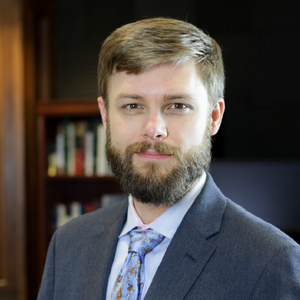Law & Principles
Trent England | September 10, 2015
Five Questions about Article V: Question #3
Trent England
Part three of five in the "Five Questions: Constitution expert Trent England on the pros and cons of an Article V convention" series. -Editor
Holding a national convention to propose constitutional amendments is either the only solution to rebalance our political system or a sure path to its final destruction. At least, those are the two points of view most commonly heard in the current debate over using “Article V”—really just one clause therein—in an attempt to change the U.S. Constitution.
Why call a convention?
Those who want to change the Constitution have many, and sometimes conflicting, arguments and objectives. On the political left, “Move to Amend” is a grassroots campaign that wants to eliminate constitutional protections that limit government regulation of political activities. On the right are efforts to achieve several different versions of a balanced budget amendment, to either define marriage in the Constitution or require that the issue be left to the states, and simply to consider any proposal that might restrain federal power.
This latter effort, led by a group called “Convention of States,” has the support of conservative leaders like radio host Mark Levin, libertarian law professor Randy Barnett, and Oklahoma’s former U.S. Sen. Tom Coburn. They argue their plan is “the only constitutionally effective means available to do what is essential for our nation—restoring a robust federalism with genuine checks on the power of the federal government.”
Another effort, the “Compact for America,” offers something like a hybrid plan. They would change the constitution through the convention process, but have state legislatures use an interstate compact. Such a contract among the states, common in other areas of law, could define the procedures and limit the power of a convention. The Compact effort is designed to satisfy some of the concerns of convention critics.

Trent England
David and Ann Brown Distinguished Fellow
Trent England is the David and Ann Brown Distinguished Fellow at the Oklahoma Council of Public Affairs, where he previously served as executive vice president. He is also the founder and executive director of Save Our States, which educates Americans about the importance of the Electoral College. England is a producer of the feature-length documentary “Safeguard: An Electoral College Story.” He has appeared three times on Fox & Friends and is a frequent guest on media programs from coast to coast. He is the author of Why We Must Defend the Electoral College and a contributor to The Heritage Guide to the Constitution and One Nation Under Arrest: How Crazy Laws, Rogue Prosecutors, and Activist Judges Threaten Your Liberty. His writing has also appeared in the Wall Street Journal, USA Today, Washington Times, Hillsdale College's Imprimis speech digest, and other publications. Trent formerly hosted morning drive-time radio in Oklahoma City and has filled for various radio hosts including Ben Shapiro. A former legal policy analyst at The Heritage Foundation, he holds a law degree from The George Mason University School of Law and a bachelor of arts in government from Claremont McKenna College.